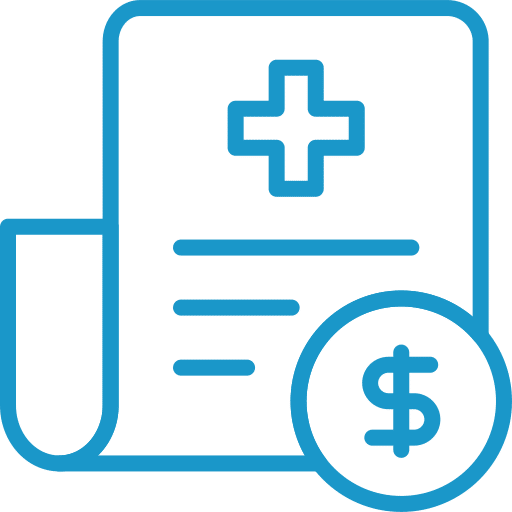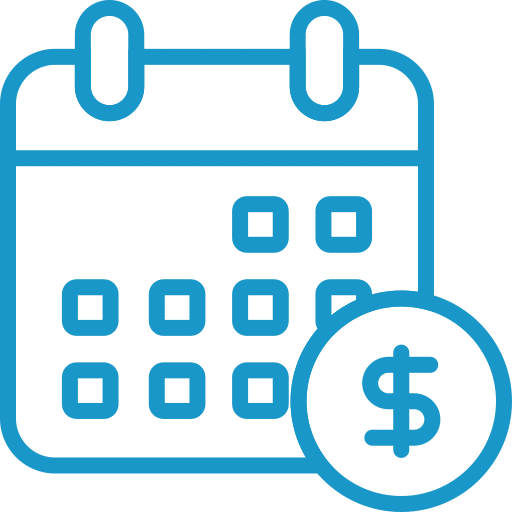$100,000 Personal Loans
Get pre-qualified for a personal loan. Checking rates won’t affect your credit score







Personal Loans Up To $100k
In certain life circumstances, acquiring a $100,000 personal loan may become necessary, such as for substantial home renovations, debt consolidation, or unforeseen medical expenses. Although this amount may appear daunting, many individuals mistakenly assume they would not meet the qualifications for such a loan. However, this is not universally accurate. With strategic planning and adherence to certain steps, many individuals can indeed obtain a $100,000 personal loan.
Applying for a $100k personal loan is simple:
Compare personal loan rates
Compare personal loan rates in July, 2025
Need help finding the right loan?
No worries, we've got you covered! Compare personalized loan options in just minutes.
How Pasha Funding Works

Compare personal loan rates
Can I get a personal loan for $100,000?
Yes, it is possible to obtain a personal loan for $100,000. The availability of such loans and your eligibility will depend on various factors, including your creditworthiness, income, and the lending institution's policies.
When applying for a personal loan of this amount, lenders typically consider your credit history, income, debt-to-income ratio, and other relevant financial information to assess your ability to repay the loan. Having a good credit score and a stable income can increase your chances of qualifying for a $100,000 personal loan.
It's important to note that personal loans can be both secured (requiring collateral) or unsecured (not requiring collateral). Secured loans may have lower interest rates but require you to provide an asset as collateral, such as a home or a vehicle. Unsecured loans, on the other hand, do not require collateral but may have higher interest rates.
Where can I get a $100,000 personal loan?
When seeking a $100,000 personal loan, several reputable financial institutions offer competitive options to consider. Here is a breakdown of potential sources where you can explore obtaining such a loan:
Banks
- Major Banks: Major banks, such as Wells Fargo, Bank of America, Chase, and Citibank, offer personal loans of varying amounts, including $100,000.
- Regional Banks: Explore local or regional banks in your area, as they may have specific loan products and favorable terms for personal loans.
Credit Unions
- Local Credit Unions: Credit unions often provide attractive rates and personalized service. Check with local credit unions or ones you are eligible to join for potential $100,000 personal loan options.
- Industry-Specific Credit Unions: Some credit unions cater to specific industries or professions, offering specialized loan products. Research and inquire if there are any relevant credit unions that meet your needs.
Online Lenders
- Peer-to-Peer Lending Platforms: Platforms like LendingClub and Prosper connect borrowers directly with individual lenders. They offer competitive rates and flexible terms for personal loans, including larger amounts like $100,000.
- Online Financial Institutions: Online lenders such as SoFi, Avant, and Marcus by Goldman Sachs provide convenient online application processes and may offer $100,000 personal loans.
Non-Bank Financial Institutions
- Online Banks: Online-based banks like Ally Bank and Discover Bank offer personal loans with competitive rates and transparent terms.
- Non-Bank Lenders: Non-bank lenders like LightStream and Upgrade also offer personal loans, including higher loan amounts like $100,000.
When considering lenders for a $100,000 personal loan, it's crucial to compare interest rates, fees, repayment terms, and customer reviews. Additionally, consider factors like the lender's reputation, customer service, and eligibility requirements.
How much does a $100,000 personal loan cost?
The cost of a $100,000 personal loan will depend on several factors, including the interest rate, loan term, and any associated fees. To determine the total cost, you need to consider both the principal amount borrowed and the interest charges over the loan term.
Here's a general example to illustrate the cost of a $100,000 personal loan:
Loan Amount: $100,000 Interest Rate: 7% (annual interest rate) Loan Term: 5 years (60 months)
Using these values, you can calculate the monthly payment and the total repayment amount over the loan term.
Using a loan calculator or formula, the monthly payment (PMT) can be estimated as follows:
PMT = (Loan Amount * Monthly Interest Rate) / (1 - (1 + Monthly Interest Rate)^(-Loan Term))
Monthly Interest Rate = Annual Interest Rate / 12
Let's calculate the monthly payment based on these assumptions:
Monthly Interest Rate = 7% / 12 = 0.5833%
PMT = ($100,000 * 0.5833%) / (1 - (1 + 0.5833%)^(-60)) PMT = $2,042.23 (approximately)
In this example, the estimated monthly payment would be approximately $2,042.23.
To calculate the total cost of the loan, multiply the monthly payment by the number of months in the loan term:
Total Repayment Amount = Monthly Payment * Loan Term Total Repayment Amount = $2,042.23 * 60 Total Repayment Amount = $122,534.04
Therefore, the estimated total cost of a $100,000 personal loan with a 7% interest rate over a 5-year term would be approximately $122,534.04.
It's important to note that this is just an estimation, and the actual cost of the loan may vary based on the specific terms and conditions offered by the lender. Factors such as any additional fees, prepayment penalties, or fluctuations in interest rates can affect the final cost. It's advisable to consult with lenders directly to obtain accurate and up-to-date information regarding the cost of a $100,000 personal loan based on your individual circumstances.
Quick links

Ready to apply for a $100k personal loan? Get started today.
Compare personal loan rates
When is it a good idea to take out a $100,000 personal loan?
Taking out a $100,000 personal loan can be a suitable decision in specific circumstances where the benefits outweigh the costs. One such instance is when making significant investments that have the potential to generate long-term value or improve your financial situation. For example, using the loan to start or expand a business, invest in real estate, or pursue higher education can be considered strategic moves. Additionally, consolidating high-interest debt into a single loan with a lower interest rate can help save money and simplify repayments. However, careful consideration is essential, weighing the potential returns, your ability to repay, and alternative financing options. It's advisable to consult with financial advisors and conduct thorough research before committing to a $100,000 personal loan to ensure it aligns with your overall financial goals.
What is the minimum credit score required for a $100,000 personal loan?
The minimum credit score required for a $100,000 personal loan can vary depending on the lender and their specific requirements. Generally, lenders prefer borrowers with good to excellent credit scores, which typically range from 670 to 850 or higher.
Having a higher credit score increases your chances of qualifying for a loan and securing more favorable terms, such as lower interest rates. However, some lenders may consider borrowers with lower credit scores, but they may offer loans with higher interest rates or require additional documentation or collateral.
Can I get a $100,000 personal loan if I have good credit?
If you have good credit, you have a higher likelihood of being approved for a $100,000 personal loan. Good credit indicates responsible borrowing behavior and a history of timely repayments, which makes you a more attractive borrower to lenders.
Having good credit enhances your chances of securing more favorable loan terms, such as lower interest rates and flexible repayment options. Lenders are generally more willing to lend larger amounts to borrowers with good credit because they perceive them as lower-risk borrowers.
Can I get a $100,000 loan with bad credit?
Obtaining a $100,000 personal loan with bad credit can be challenging, but it is not entirely impossible. Having bad credit indicates a history of late payments, defaults, or other credit issues, which makes lenders perceive you as a higher-risk borrower.
However, there are some options you can explore:
- Collateral or Secured Loan: If you have valuable assets such as a home, vehicle, or savings, you may be able to secure a loan by offering collateral. Collateral reduces the lender's risk, increasing the likelihood of loan approval despite bad credit. However, remember that if you default on the loan, the lender may seize the collateral to recover their losses.
- Co-Signer: Finding a co-signer with good credit can improve your chances of getting approved for a $100,000 personal loan. A co-signer agrees to take responsibility for the loan if you are unable to make payments. The lender will consider the co-signer's creditworthiness when evaluating the loan application, increasing the likelihood of approval.
- Online Lenders or Subprime Lenders: Some online lenders specialize in providing loans to individuals with bad credit. These lenders may have more flexible eligibility criteria or consider other factors beyond credit score. However, be cautious of higher interest rates and fees associated with loans from subprime lenders, as they may increase the overall cost of borrowing.
- Credit Unions or Local Banks: Credit unions and local banks may have more personalized lending practices and be more willing to consider factors beyond just credit scores. Building a relationship with a local institution and demonstrating your ability to repay the loan may improve your chances of approval.
What are the monthly payments on a $100,000 personal loan?
The monthly payments on a $100,000 personal loan depend on several factors, including the interest rate and loan term. To estimate the monthly payments, we'll assume a fixed interest rate and provide examples based on different loan terms.
- 5-Year Term (60 months):
- Interest Rate: 6%
- Using a loan calculator or formula, the monthly payment can be estimated as follows: PMT = ($100,000 * Monthly Interest Rate) / (1 - (1 + Monthly Interest Rate)^(-Loan Term)) Monthly Interest Rate = 6% / 12 = 0.5% PMT = ($100,000 * 0.5%) / (1 - (1 + 0.5%)^(-60)) PMT = $1,943.04 (approximately)
- 10-Year Term (120 months):
- Interest Rate: 7%
- Using the same formula with adjusted loan term and interest rate: Monthly Interest Rate = 7% / 12 = 0.5833% PMT = ($100,000 * 0.5833%) / (1 - (1 + 0.5833%)^(-120)) PMT = $1,214.96 (approximately)
Please note that these examples are for illustrative purposes only and do not include additional fees or charges that may be associated with the loan. The actual monthly payments may vary based on the specific terms and conditions offered by the lender.
$100,000 Loan Calculator
Total Payment
-
Total Interest
-
Monthly Payment
-
Ready to apply for a personal loan?
Compare rates from top lenders with no impact on your credit, ever.
How long does it take to pay off a $100,000 personal loan?
Ultimately, it’s up to you. It depends on if you make your payments on time, whether or not you make double payments on certain months or not, etc. The more payments you make, the faster you’ll have it paid off. As this is quite a substantial loan amount and interest adds up quickly, paying off faster may save you a lot of money in the long run.
How do I qualify for a $100,000 personal loan?
In terms of having the right documents that lenders need in order to help you apply for a personal loan of $100,000, you will need:
- Credit score
- Proof of income
- Proof of residency
- Proof of employment
- Tax statements
And if you are using a cosigner, you will need all of their documentation as well, and them to be present. Your best bet is to ask prior to the meeting, what documentation is required so you don’t waste time.
How quickly can I get a $100,000 personal loan?
The speed at which you can obtain a $100,000 personal loan can vary depending on several factors, including the lender's processes, your application's completeness, and your ability to provide the required documentation promptly. Here are some factors that can affect the loan processing time:
- Online Lenders: Online lenders generally have streamlined application processes, allowing for faster approvals and funding. In some cases, you may receive a decision within minutes or hours, and the funds could be disbursed as quickly as the next business day.
- Traditional Banks and Credit Unions: Traditional financial institutions typically have more involved application processes that may take longer. It can take several days to weeks for the loan application to be processed, including the review of your credit history, income verification, and other necessary checks.
- Pre-Approval: Some lenders offer pre-approval, which can expedite the process. Pre-approval allows you to know in advance if you qualify for a loan and the approximate loan amount you may be eligible for. This way, when you formally apply, the process may be faster since some preliminary steps have already been completed.
To expedite the loan application process and potentially receive the funds quickly, consider the following tips:
- Prepare your documentation in advance, including identification, proof of income, bank statements, and any other documents required by the lender.
- Ensure your credit report is accurate and up to date.
- Have a clear understanding of your financial situation and how much you can afford to borrow.
- Apply with multiple lenders simultaneously to compare offers and choose the most favorable terms.
Will obtaining a $100,000 personal loan hurt my credit score?
Obtaining a $100,000 personal loan can impact your credit score, both positively and negatively, depending on how you manage the loan and your overall credit behavior. Here are some key factors to consider:
- Credit Inquiry: When you apply for a personal loan, the lender will typically perform a hard inquiry on your credit report. This inquiry can have a minor negative impact on your credit score, usually by a few points. However, the impact is temporary, and your score should recover within a few months.
- Payment History: Your payment history is one of the most crucial factors in determining your credit score. Making timely payments on your $100,000 personal loan will have a positive impact on your credit score, demonstrating responsible borrowing behavior.
- Credit Utilization: The loan amount will contribute to your credit utilization ratio, which is the percentage of available credit you are currently using. If the $100,000 loan significantly increases your overall debt, it can temporarily impact your credit score. However, as you make regular payments and reduce the loan balance, your credit utilization will improve, positively affecting your score over time.
- Mix of Credit: Having a diverse mix of credit types can benefit your credit score. Adding a personal loan to your credit history can contribute to a healthier mix of credit, potentially improving your score.
- Debt-to-Income Ratio: Taking on a $100,000 personal loan increases your overall debt. Lenders often consider your debt-to-income ratio when assessing creditworthiness. If your debt-to-income ratio becomes too high, it could negatively impact future borrowing opportunities.
Compare loan options for good and excellent credit:
- 680 Credit Score Personal Loans
- 700 Credit Score Personal Loans
- 750 Credit Score Personal Loans
- 800 Credit Score Personal Loans
Browse personal loans by amount:
- $5k Personal Loans
- $10k Personal Loans
- $25k Personal Loans
- $35k Personal Loans
- $50k Personal Loans
- $75k Personal Loans
- $100k Personal Loans
Additional resources
Federal Trade Commission (FTC): The FTC is a U.S. government agency that focuses on consumer protection. They provide guidance on various financial topics, including personal loans. You can find information on understanding personal loans and tips for borrowing wisely on their website.
U.S. Small Business Administration (SBA): Although primarily focused on assisting small businesses, the SBA offers resources and information on personal loans for business purposes. It can be helpful for entrepreneurs seeking loans to fund their ventures.
Consumer Financial Protection Bureau (CFPB): The CFPB is another U.S. government agency that provides consumer financial information and resources. They cover various aspects of personal loans, including understanding loan terms, comparing offers, and avoiding scams.
How to get a $100,000 personal loan
To obtain a $100,000 personal loan online, follow these steps to increase your chances of finding the best option for your needs:
- Evaluate your financial situation: Determine why you need the loan, assess your repayment ability, and calculate how much you can comfortably afford to borrow.
- Check your credit score: Review your credit report to understand your creditworthiness. If your credit score is low, consider taking steps to improve it before applying for a large loan.
- Research online lenders: Look for reputable online lenders that offer personal loans with loan amounts up to $100,000. Compare interest rates, loan terms, fees, and eligibility requirements from multiple lenders to find the best options.
- Pre-qualification or pre-approval: Some online lenders provide pre-qualification or pre-approval processes. These allow you to check if you're likely to be approved and view potential loan terms without affecting your credit score. Use this to narrow down your options and focus on lenders that are more likely to approve your application.
- Gather required documentation: Online lenders typically require certain documents, such as identification, proof of income, bank statements, and other financial information. Prepare these documents in advance to expedite the application process.
- Complete the online application: Fill out the online loan application accurately and provide all necessary information. Double-check the details before submitting to avoid any mistakes or delays.
- Review and compare loan offers: Once you receive loan offers from different lenders, carefully review the terms, interest rates, repayment options, and any associated fees. Consider the overall cost of the loan and choose the offer that best suits your needs.
- Read the loan agreement carefully: Before accepting a loan offer, read the loan agreement thoroughly. Understand the terms, repayment schedule, fees, and any potential penalties for early repayment or late payments.
- Submit your acceptance: If you find a suitable loan offer, follow the lender's instructions to formally accept the loan. This may involve electronic signatures or additional verification steps.
- Receive funds and start repayments: Once your loan is approved, the lender will disburse the funds to your designated bank account. Set up automatic payments or establish a repayment plan to ensure timely repayments.
Personal Loans for Every Occasion
Find Your Best Rate
Compare Best Personal Loans
Personal Loan Payoff Calculator
Personal Loan Lender Reviews
Personal Loans By Credit
Personal Loans for Fair Credit
Personal Loans for Good Credit
Personal Loans for Excellent Credit
Personal Loan Types
Auto Repair Loans
Credit Card Consolidation Loans
Fast Personal Loans
Home Improvement Loans
Horse Barn Financing
Wedding Loans
Family Planning Loans
Funeral Financing
Land Purchase Financing
Manufactured Home Financing
Medical Loans
Cosmetic & Plastic Surgery Financing
Owner Builder Construction Loans
Personal Loans for House Down Payment
Personal Loans for Self Employed
Personal Loans for Furniture Expenses
Student Loans
Debt Consolidation Loans
Vacation & Travel Loans
Emergency Personal Loans
Personal Loans with Co-signers
Home Improvement Financing
Appliance Financing
Bathroom Remodel Financing
Basement Remodel Financing
Boat Dock Loans
Deck Financing
Driveway Paving Financing
Fence Financing
Flooring Financing
Furnace Financing
Garage Financing
Home Addition Financing
Hot Tub Financing
HVAC Financing
Home Insulation Financing
Interior & Exterior Painting Financing
Kitchen Remodel Financing
Kitchen Cabinet Financing
Pole Barn Financing
Roof Financing
Solar Panel Financing
Swimming Pool Financing
Sunroom Addition Loans
Window Replacement Financing
Loan rate & terms disclosure: Prequalified rates are based on the information you provide and a soft credit inquiry. Receiving prequalified rates does not guarantee that the Lender will extend you an offer of credit. You are not yet approved for a loan or a specific rate. All credit decisions, including loan approval, if any, are determined by Lenders, in their sole discretion. Rates and terms are subject to change without notice. Rates from Lenders may differ from prequalified rates due to factors which may include, but are not limited to: (i) changes in your personal credit circumstances; (ii) additional information in your hard credit pull and/or additional information you provide (or are unable to provide) to the Lender during the underwriting process; and/or (iii) changes in APRs (e.g., an increase in the rate index between the time of prequalification and the time of application or loan closing. (Or, if the loan option is a variable rate loan, then the interest rate index used to set the APR is subject to increases or decreases at any time). Lenders reserve the right to change or withdraw the prequalified rates at any time.
Requesting prequalified rates on Credible is free and doesn't affect your credit score. However, applying for or closing a loan will involve a hard credit pull that impacts your credit score and closing a loan will result in costs to you.









